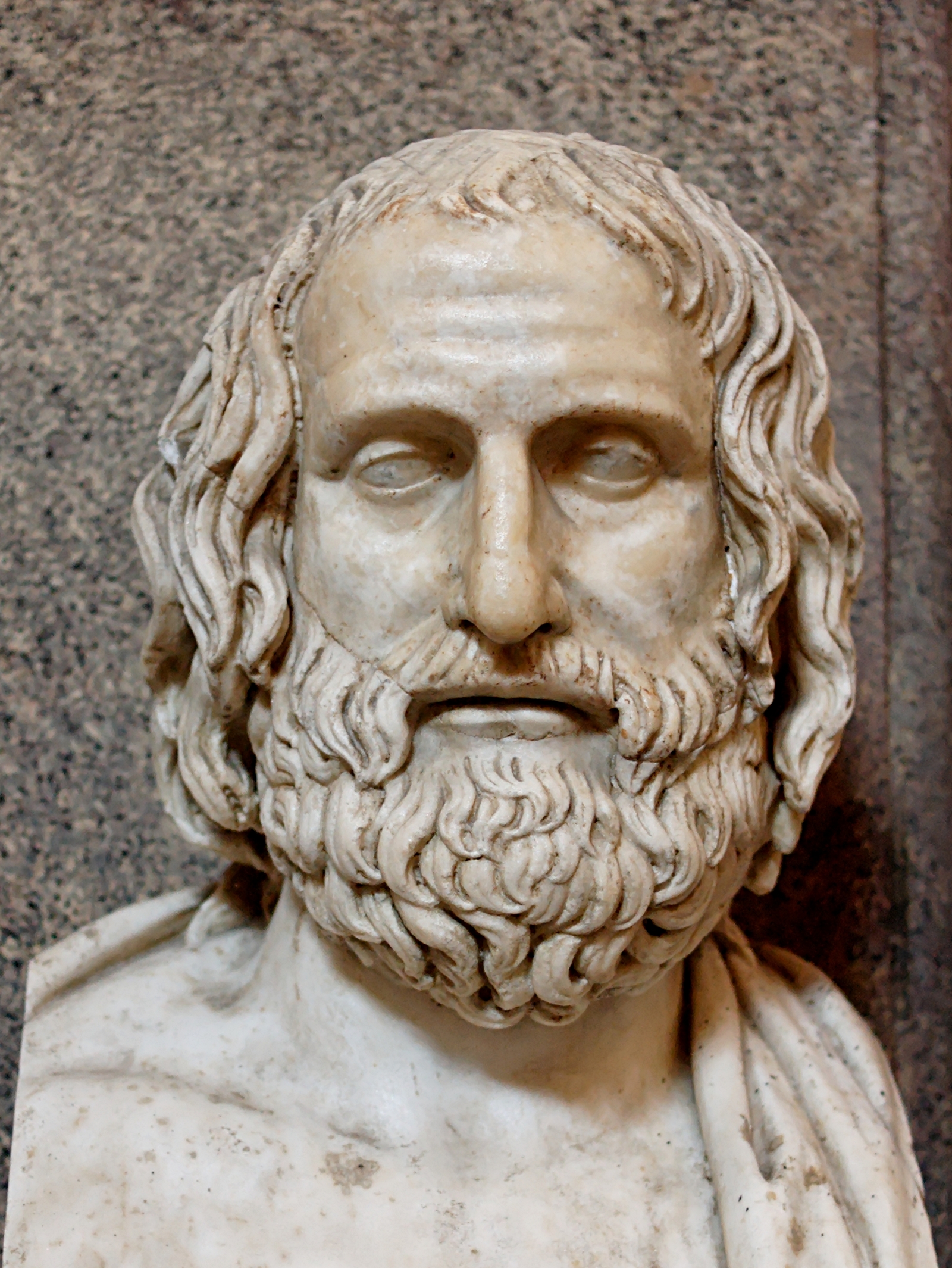Frases célebres de Euripidés
Frases de vida de Euripidés
Frases de hombres de Euripidés
Euripidés Frases y Citas
“No creáis nunca que los opulentos son dichosos hasta no llegar su última hora.”
Tragedias de Eurípides
“El que habla a un necio, aunque sea prudente, parecerá también necio.”
Fuente: "Las Bacantes", 405 a. C. (representación póstuma).
Fuente : Ifigenia entre los Tauros (c. 414 a. C.)
Euripidés: Frases en inglés
Bellerophon, Fragment 298; quoted in Plutarch's Morals : Ethical Essays (1888) edited and translated by Arthur Richard Shilleto, p. 293
“The credit we get for wisdom is measured by our success.”
Fuente: Hippolytus (428 BC), l. 701, translated by Edward P. Coleridge
“Slow but sure moves the might of the gods.”
Bacchæ l. 882
Variant translation: Slowly but surely withal moveth the might of the gods.
“I begin by taking. I shall find scholars later to demonstrate my perfect right.”
Supposedly in The Suppliants.
Also attributed to Frederick the Great of Prussia.
Disputed
“I know, indeed, the evil of that I purpose; but my inclination gets the better of my judgment.”
Fuente: Medea (431 BC), Line 1078
Sisyphus as translated by R. G. Bury, and revised by J. Garrett
“A second wife is hateful to the children of the first; A viper is not more hateful.”
Fuente: Alcestis (438 BC), l. 309
“Of all things upon earth that bleed and grow,
A herb most bruised is woman.”
Fuente: Medea (431 BC), Lines 230–231 in Gilbert Murray's translation ( p. 15 https://archive.org/stream/medeatranslatedi00euriuoft#page/15/mode/1up)
“Thou didst bring me forth for all the Greeks in common, not for thyself alone.”
Iphigenia in Aulis, 1386
Hecuba, lines 1178-1182 ( tr. Jay Kardan and Laura-Gray Street (2010) http://didaskalia.net/issues/8/32/)
Variant ( tr. E. P. Coleridge (1938) http://data.perseus.org/citations/urn:cts:greekLit:tlg0006.tlg007.perseus-eng1:1145-1186):
[I]f any of the men of former times have spoken ill of women, if any does so now, or shall do so hereafter, I will say all this in one short sentence; for neither land or sea produces such a race, as whoever has had to do with them knows.
Hecuba (424 BC), lines 1177-1182. [Euripides, William Arrowsmith (translated by), Grene, David, Lattimore, Richmond, Euripides III: Four Tragedies, University of Chicago Press, Chicago, IL, USA, 0226307824, paperback]
Variant ( tr. Jay Kardan and Laura-Gray Street (2010) http://didaskalia.net/issues/8/32/):
Let me tell you, if anyone in the past has spoken
ill of women, or speaks so now or will speak so
in the future, I’ll sum it up for him: Neither sea
nor land has ever produced a more monstrous
creature than woman.
